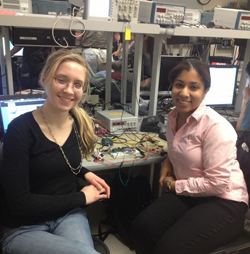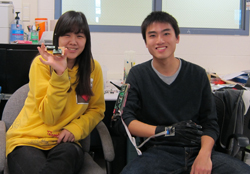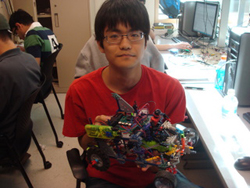Course Description
ECE 4760 is a course on designing complex electronic systems using microcontrollers for embedded control.
The purpose of this course is to enable students to carry out sophisticated designs of the modern digital systems which now appear in products such as automobiles, appliances and industrial tools. One important ingredient of such systems is the microcontroller; a microcomputer optimized for single-chip system design and containing a processor core, memory, and programmable input/output peripherals.
The microcontrollers used in this course are the Microchip PIC32 series RISC microcontrollers. Microchip’s 32-bit microcontroller portfolio with the MIPS microAptiv or M4K core offer high performance microcontrollers and all the tools needed to develop embedded projects.
Instructor(s)
Bruce R. Land
214 Phillips Hall Ithaca, NY 14853
Tel: 607-255-7994
Email: brl4 at cornell.edu
Course Level
Undergraduate (senior level)
As Offered In
Fall 2015
Required Text(s)
PIC32 processor reference manual.
Course Structure
The course consists of:
- Three weekly lectures
- Five homework sets per semester
- Four labs per semester (each two weeks long)
- One relatively open-ended lab design project per semester (five weeks long)
- No exams.




